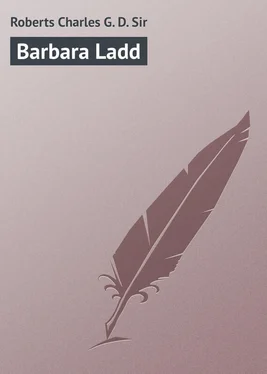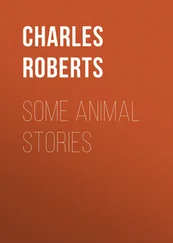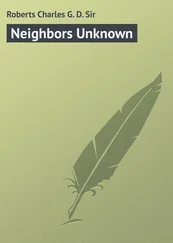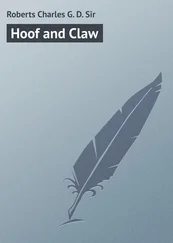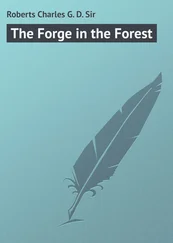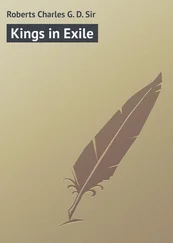Charles Roberts - Barbara Ladd
Здесь есть возможность читать онлайн «Charles Roberts - Barbara Ladd» — ознакомительный отрывок электронной книги совершенно бесплатно, а после прочтения отрывка купить полную версию. В некоторых случаях можно слушать аудио, скачать через торрент в формате fb2 и присутствует краткое содержание. ISBN: , Жанр: foreign_prose, foreign_language, на английском языке. Описание произведения, (предисловие) а так же отзывы посетителей доступны на портале библиотеки ЛибКат.
- Название:Barbara Ladd
- Автор:
- Жанр:
- Год:неизвестен
- ISBN:http://www.gutenberg.org/ebooks/34270
- Рейтинг книги:4 / 5. Голосов: 1
-
Избранное:Добавить в избранное
- Отзывы:
-
Ваша оценка:
- 80
- 1
- 2
- 3
- 4
- 5
Barbara Ladd: краткое содержание, описание и аннотация
Предлагаем к чтению аннотацию, описание, краткое содержание или предисловие (зависит от того, что написал сам автор книги «Barbara Ladd»). Если вы не нашли необходимую информацию о книге — напишите в комментариях, мы постараемся отыскать её.
Barbara Ladd — читать онлайн ознакомительный отрывок
Ниже представлен текст книги, разбитый по страницам. Система сохранения места последней прочитанной страницы, позволяет с удобством читать онлайн бесплатно книгу «Barbara Ladd», без необходимости каждый раз заново искать на чём Вы остановились. Поставьте закладку, и сможете в любой момент перейти на страницу, на которой закончили чтение.
Интервал:
Закладка:
So Barbara went back to Aunt Hitty – who received her gravely; and the kittens came back from their hollow tree; and the shock of clashing spheres was averted. But the peace was a hollow and precarious one – an armistice, rather than a peace. For about a week Barbara's heart and hands were pretty well occupied by her little charges, and Mistress Mehitable found her conciliatory. But one day there came a letter from Uncle Bob, accompanied by a box which contained macaroons and marchpanes, candied angelica, a brooch of garnets, and a piece of watchet-blue paduasoy sufficient to make Barbara a dress. The letter announced that Uncle Bob was at Bridgeport, and about to sojourn for a time at the adjoining village of Stratford. Why, Stratford was in Connecticut – it could not be very far from Second Westings! Barbara's heart throbbed with excitement. The very next day she made excuse to visit Lawyer Perley, and consult a map of the Connecticut colony which she had once observed in his office. She noted the way the rivers ran – and her heart beat more wildly than ever. Just at this point conscience awoke. She put the dangerous thought away vehemently, and for a whole week was most studious to please. But Mistress Mehitable was still austere, still troubled in her heart as to whether she had done right about the kittens. One morning just after breakfast Barbara was set to hemming a fine linen napkin, at a time when she was in haste to be at something else more interesting. She scamped the uncongenial task – in very truth, the stitches were shocking. Hence came an unpleasantness. Barbara was sent to her room to meditate for an hour. She was now all on fire with revolt. Escape seemed within reach. She meditated to such purpose that when her hour was past she came forth smiling, and went about her affairs with gay diligence.
It was on the following morning that, when the first pallor of dawn touched the tree-tops, she climbed out of the window, down the apple-tree, and fled with her bundle and her kittens.
CHAPTER VII
After her breakfast at old Debby's, Barbara urged forward her canoe with keen exhilaration. Now was she really free, really advanced in her great adventure. A load of anxiety was lifted from her mind. She had succeeded in arranging so that the letter would be delivered to her aunt – a matter which had been fretting at her conscience. Moreover, old Debby had shown no surprise or disapproval on hearing of her rash venture. It nettled Barbara, indeed, to have so heroic an enterprise taken so lightly; but she augured therefrom that it was more feasible than she had dared to hope, and already she saw herself installed as mistress of Uncle Bob's home in Stratford.
"He'll love us, my babies!" she cried to the kittens in the basket, and forthwith plied her paddle so feverishly that in a few minutes she had to stop and take breath.
The river at this point wound through low meadows, sparsely treed with the towering, majestic water poplar, sycamore, and arching elm, with here and there a graceful river birch leaning pensively to contemplate its reflection in the stream. The trees and flowers were personal to Barbara, her quick senses differentiating them unerringly. The low meadow, swampy in spots, was a mass of herbs, shrubs, and rank grasses, for the most part now in full flower; and the sun was busy distilling from them all their perfumes, which came to Barbara's nostrils in warm, fitful, varying puffs. She noted the tenderly flushing feathery masses of meadowsweet, which she could never quite forgive for its lack of the perfume promised by its name. From the dry knolls came the heavy scent of the tall, bold umbels of the wild parsnip, at which she sniffed with passing resentment. Another breath of wind, and a turn of the stream into a somewhat less open neighbourhood, brought her a sweet and well-loved savour, and she half rose in her place to greet the presence of a thicket of swamp honeysuckle. She noted, as she went, pale crimson colonies of the swamp rose, hummed over softly by the bees and flies. Purple Jacob's-ladder draped the bushes luxuriantly, with wild clematis in lavish banks, and aerial stretches of the roseate monkey-flower on its almost invisible stems. Her heart went out to a cluster of scented snakemouth under the rim of the bank. She was about to turn her prow shoreward and gather the modest pinkish blossoms for their enchanting fragrance, when she observed leaning above them her mortal enemy among the tree-folk, the virulent poison sumac. She swerved sharply to the other side of the stream to avoid its hostile exhalations.
The little river now widened out and became still more sluggish. A narrow meadow island in mid-stream intoxicated Barbara's eyes with colour, being fringed with rank on rank of purple flag-flower, and its grassy heart flame-spotted with the blooms of the wild lily. The still water along the shores was crowded with floating-heart, and pale-blossomed arrowhead, and blue, rank pickerel-weed; and Barbara, who did not mind the heat, but revelled in the carnival of colour, drew a deep breath and declared to herself (giving the flat lie to ten thousand former assertions of the like intimacy) that the world was a beautiful place to live in. No sooner had she said it than her heart sank under a flood of bitter memories. She seemed once more to feel the water singing in her ears, to see its golden blur filling her eyes, as on that morning when she lay drowning in the lake. The glory of the summer day lost something of its brightness, and she paddled on doggedly, looking neither to the right hand nor to the left.
But this was a mood that could not long hold dominion over Barbara's spirit on this day of days, when she was journeying to freedom. It took no more than the scarlet flash of a tanager across her bow, the flapping of a startled brood of ducks from their covert in the sedge, to lure her back to gladness and the seeing eye. At last the river carried her into quite different surroundings. Still slow, and smooth, and deep, it entered the neighbourhood of great trees growing close, the ancient and unviolated forest. The day grew cool and solemn, the diffused light floating hushed under the great arches of brown and gray and green. By contrast it seemed dark, but the air was of a wonderful transparency, and Barbara's eyes, opening wide in delicious awe, saw everything more distinctly than in the open. She whispered to the yellow birch, the paper birch, the beech, the maple, and the chestnut, each by name lovingly, as she slipped past their soaring trunks, knowing them by the texture and the features of their bark though their leaves hung far overhead. Her paddle dipped without noise, lest the mysteries of the forest conclave should be disturbed by her intrusion. So keen and so initiated were her young eyes that she discerned the sleeping nighthawk on his branch, where his likeness to a knotted excrescence of the bark made him feel secure from the most discriminating vision. Passing a dead pine with a small, neatly rounded hole about ten feet up the trunk, she heard, or thought she heard, the safe conferring of the nest full of young woodpeckers in its hollow depth – which, indeed, was probably but the stirring of her own blood-currents within her over-attentive little ears. Suddenly the vast stillness appeared to close down upon her, not with oppression, but with a calm that was half fearful, half delicious; and it seemed as if the fever of her veins was being slowly drawn away. The mystic shores slipped by with speed, though she hardly knew she was paddling. And when, suddenly, a great brown owl dropped from a beech limb and went winnowing soundlessly down the stream ahead of her, she caught her breath, feeling as if the soul of the silence had taken palpable shape before her eyes.
Now, as it seemed to Barbara, life and movement began to appear, at the summons of those shadowy wings. A little troop of pale-winged moths drifted, circling lightly, over the stream; and a fly-catcher, with thin, cheeping cries, dropped some twenty feet straight downward from an overhanging limb, fluttered and zigzagged for a moment in mid-air, capturing some small insect darters which Barbara could not see, then shot back into the leafage. Then upon a massive, sloping maple-branch close to the bank, she saw a stocky black-and-white shape slowly crawling. The head was small and flattened, the bright little eyes glittered upon her in defiance, and a formidable ridge of pointed quills erected itself angrily along the back. The animal uttered a low, squeaking grunt, and Barbara, with prompt discretion, steered as close as possible to the opposite bank, glancing apprehensively over her shoulder as she passed. She was strongly inclined to like the porcupine; but his ill-temper was manifest, and she had faith in the superstition that he could shoot his needle-like quills to a distance and pierce the object of his dislike. Barbara could not contemplate the possibility of appearing before her uncle like a pin-cushion, stuck full of porcupine quills.
Читать дальшеИнтервал:
Закладка:
Похожие книги на «Barbara Ladd»
Представляем Вашему вниманию похожие книги на «Barbara Ladd» списком для выбора. Мы отобрали схожую по названию и смыслу литературу в надежде предоставить читателям больше вариантов отыскать новые, интересные, ещё непрочитанные произведения.
Обсуждение, отзывы о книге «Barbara Ladd» и просто собственные мнения читателей. Оставьте ваши комментарии, напишите, что Вы думаете о произведении, его смысле или главных героях. Укажите что конкретно понравилось, а что нет, и почему Вы так считаете.
